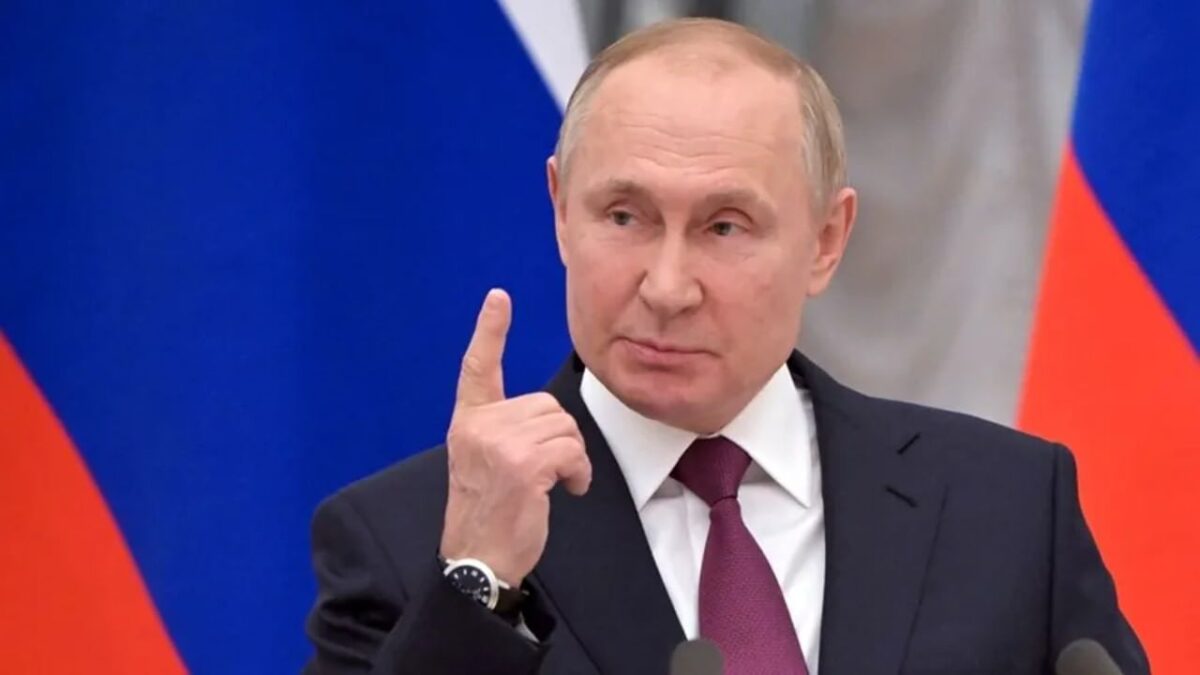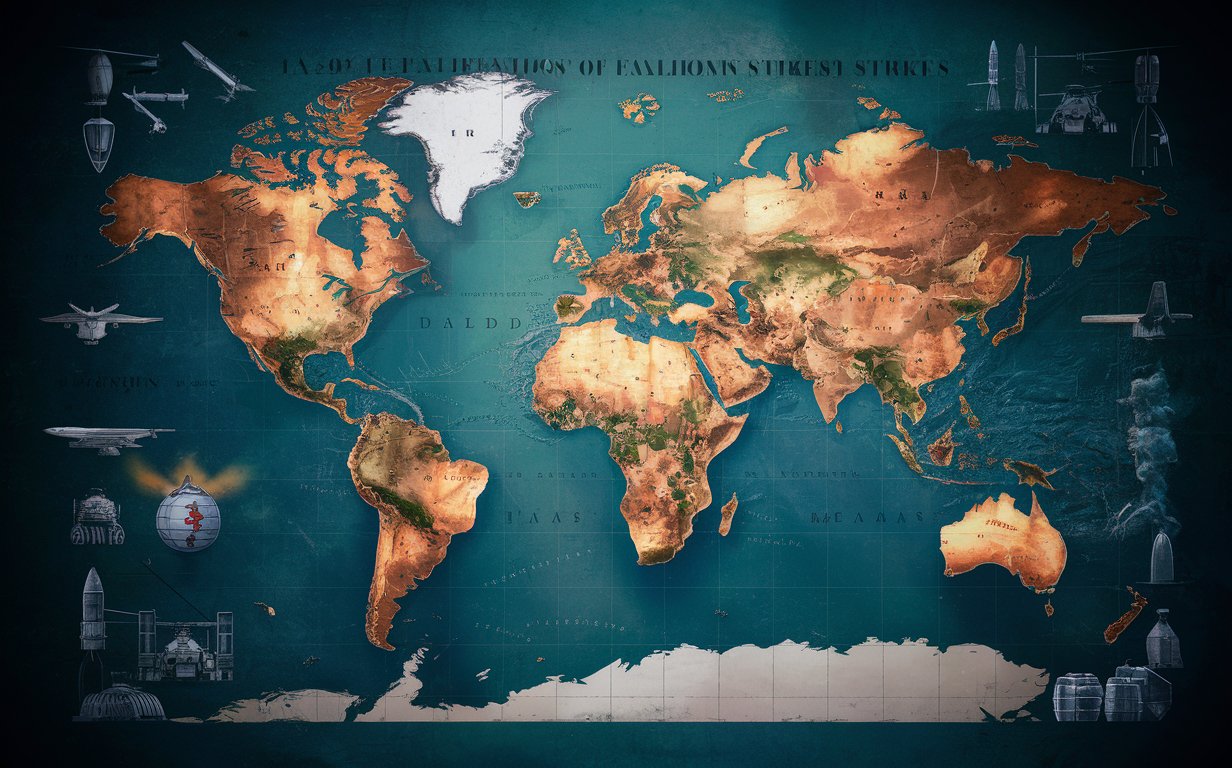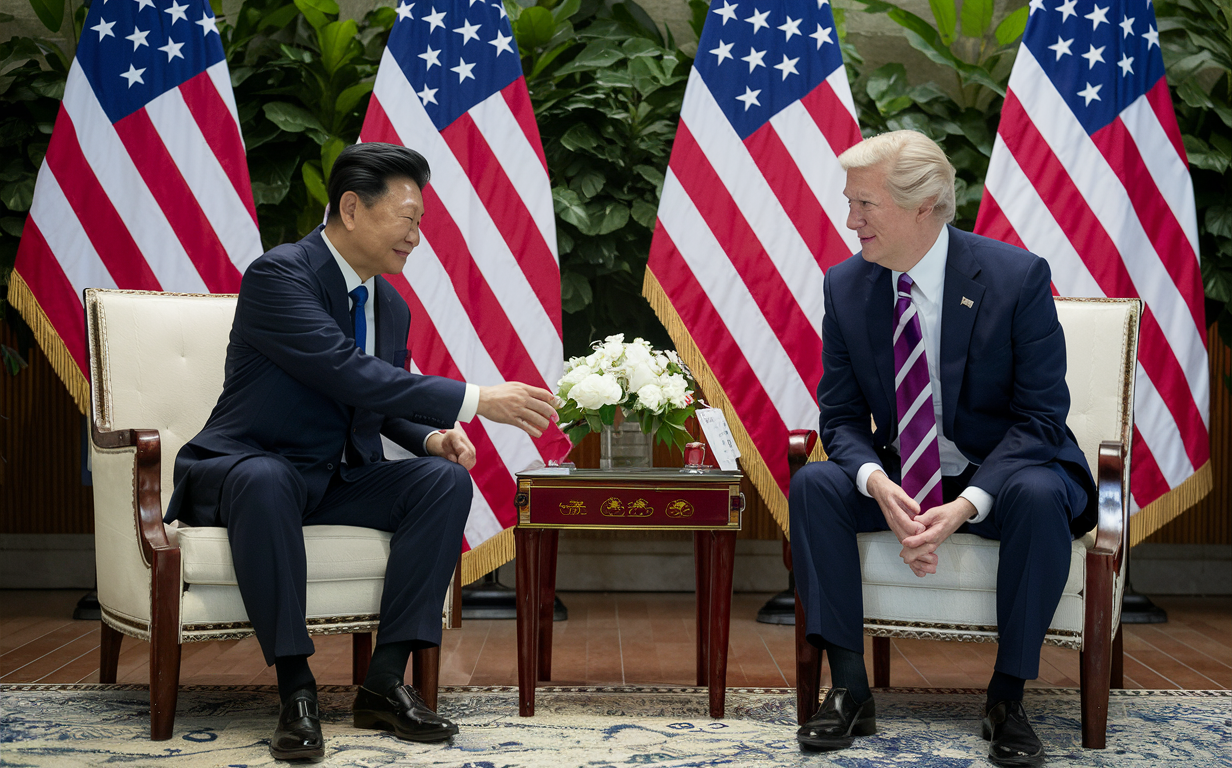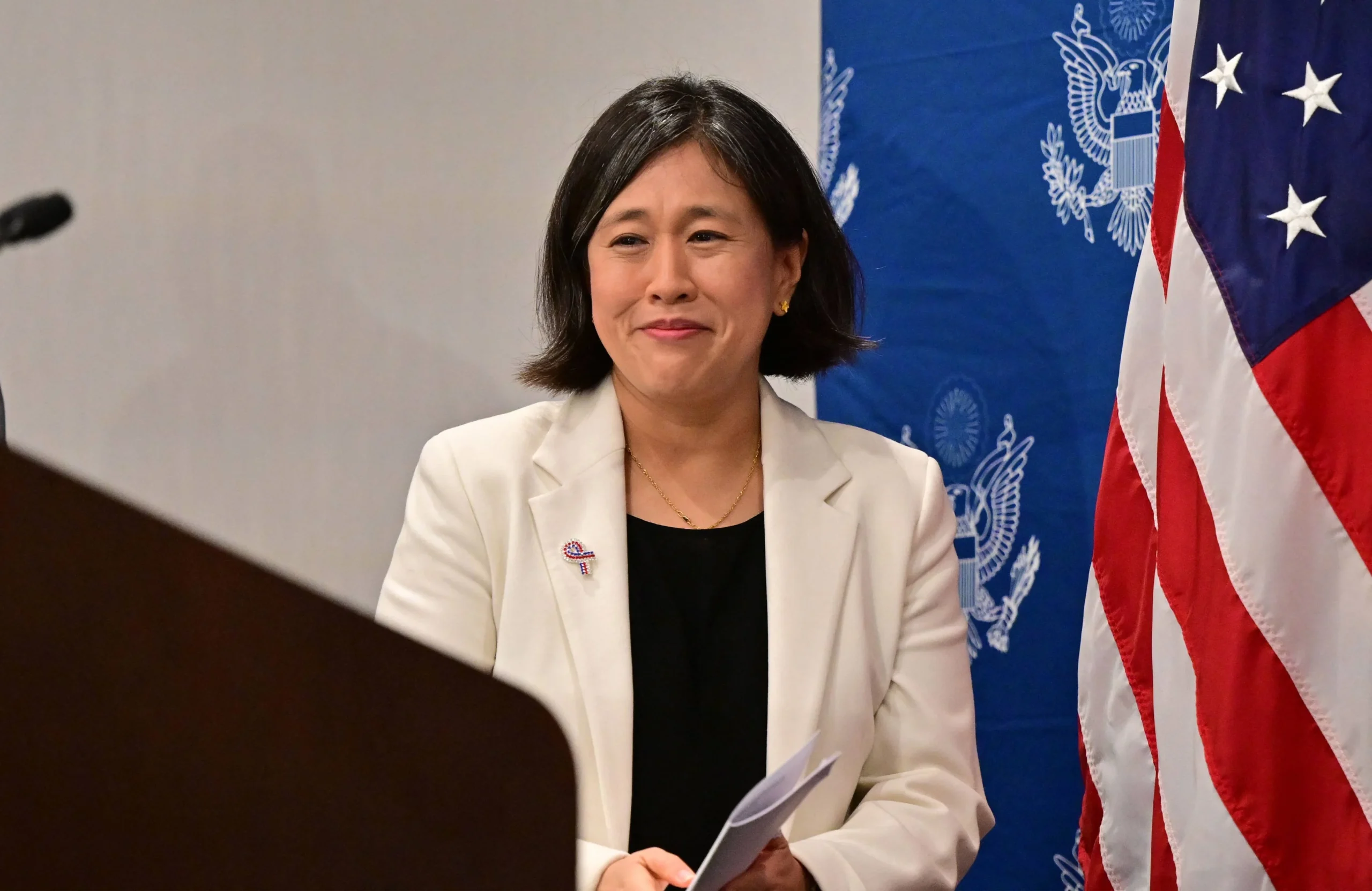Analysis
How Russia’s sanction-proofing failed

“How could our government have been so stupid?” one Russian acquaintance of mine wondered, after the West imposed sweeping sanctions that froze around $300 billion of the Russian government’s foreign exchange reserves held in Western banks.
Over the past few weeks, the US, EU, UK, Japan, and other allies have hit Russia with a package of restrictions targeting its access to foreign financing and technology. Russia’s currency has plummeted, inflation is rising, living standards are slumping, and many factories across the country have stopped work due to shortages in components. Russia now faces the deepest economic crisis since post-Soviet collapse in the Nineties — a downturn so severe that it may eventually threaten Vladimir Putin’s hold on power.
Only one month ago, analysts were focused not on Russia’s vulnerability to sanctions but its supposed “sanctions-proofing” strength. The Russian government has dealt with Western sanctions for decades, from the technological restrictions the West imposed on the USSR to the most recent restrictions on oil drilling technology and access to capital markets imposed after Russia’s first attack on Ukraine in 2014. However, the strength of the latest came as a surprise to Russia’s leaders. They thought they had taken adequate steps to defend their economy and that Western leaders would be too worried about domestic prosperity to risk tough measures. Neither assumption proved correct — and now Russia is paying the price.
Like many adversaries of the United States, from North Korea to Iran to Venezuela, Russia sees American sanctions as a fact of life. Almost every year over the past decade, the US has slapped on a new set of sanctions, sometimes unilaterally, sometimes in conjunction with allies in Europe. Some have been linked to domestic human rights violations, such as those implemented under the Magnitsky Act, named after a Russian lawyer who died under suspicious conditions in jail after uncovering a government-linked fraud. Some have been sparked by Russian meddling in American elections. Others were motivated by Russia’s use of a nerve agent in an attempted assassination in the UK. As Putin said just before announcing his decision to attack Ukraine: “They will never think twice before coming up with or just fabricating a pretext for yet another sanction attack … their one and only goal is to hold back the development of Russia.”
From the moment Putin announced that Russia was beginning a “special military operation” to “denazify” Ukraine, more sanctions were inevitable. The Biden administration had threatened “devastating” sanctions, though after endured many rounds of not-very-tough Western sanctions, most Russian leaders thought America was bluffing. The fact that European leaders were divided about sanctions — and that Germany, Europe’s most important player, was putting the finishing touches on a new Russian gas pipeline — led the Russians to believe that the West wasn’t ready for full-scale economic warfare. The Kremlin, therefore, began the war expecting measures that were costly but survivable. In a public meeting right before the invasion, Prime Minister Mikhail Mishustin briefed Putin that “we have thoroughly reviewed these risks” and that “we have been preparing for months”.
In fact, Russia had been preparing for years, knowing that sanctions were always a risk. America’s sanctions campaign against Iran, which cut off its ability to export oil, was a worrisome precedent — though Russia was a far more important oil producer than the Islamic Republic. The 2014 sanctions against Russia, meanwhile, showed that when the US, UK, and EU joined forces, they could sever Russian firms from financial markets in ways that no other country — not even China — could equal.
In response, Russia developed a five-pronged strategy to steel its economy. The first step was to build up a substantial war chest of foreign exchange reserves, including major currencies (Euro, sterling, dollar, yen, and renminbi) and over $100 billion worth of gold. These reserves, equivalent to over twice the value of goods Russia imports in a typical year, were supposed to give Russia financial flexibility in case the West tried imposing restrictions on its ability to export goods and earn foreign currency abroad.
The second prong in Russia’s “sanctions-proofing” strategy was to reduce its use of the US dollar, the currency in which most commodities — and thus most of Russia’s exports — are priced. Russia managed to substantially reduce the scope of dollars in its foreign trade, largely by shifting its trade with China to Euros. The Kremlin also cut dollar holdings in its foreign currency reserves, choosing to hold more of other currencies, including renminbi, instead.
Third, Russia tried developing internal payments systems in case it was severed from Western-dominated platforms. Many purchases in Russia are made using Visa or Mastercard, which are subject to US sanctions legislation. Most international banking transactions are mediated by SWIFT, a Belgium-based organisation subject to EU sanctions. Russia has rolled out a domestic card payment system, called Mir, and an interbank payment system modeled on SWIFT, trying to prepare itself for a potential future without access to these Western platforms.
The fourth strategy was to intensify economic cooperation with China. The more China’s economy grew, and the more ties that Russia had with it, the more Russian leaders felt secure. The Kremlin knew it could rely on China to vociferously object to any Western sanctions that were applied extraterritorially to Chinese firms.
Finally, Russia counted on the West’s energy dependence to limit any willingness to apply economic pressure. The fact that the Germans were afraid of even mentioning the Nord Stream II pipeline demonstrated timidity that emboldened the Kremlin. However, though Germans were uniquely supine in their energy relations with Russia, they weren’t alone in their dependence. America liked to condemn Germany over Nord Stream II, but American politicians were and are highly sensitive to gasoline prices. Restrictions on Russian oil exports were, therefore, guaranteed to be a matter of acute domestic political concern, because such a move would drive up gasoline prices worldwide. The Kremlin assumed this was a price Western leaders would be unwilling to pay.
When Russian forces rolled into Ukraine, however, the West was jolted out of complacency. Though US and UK intelligence had been warning for several months that Russia was ready to invade, most people — and most Western European leaders — simply didn’t believe it. Images of Ukrainian cities aflame left them shocked. So it was Europe that led the drive during the first week of war for tougher economic sanctions, culminating in an almost unprecedented freeze on Russia’s central bank reserves.
This was a level of sanctions escalation that Russian policymakers had never seriously contemplated. On its own, the move — grabbing control of around $300 billion worth of Russian foreign exchange reserves stashed in Western financial institutions — constituted the biggest bank heist in world history. The fact that these moves were multilateral meant that “de-dollarising” didn’t matter. The Euro, pound, and yen were no more accessible to the Kremlin. And it didn’t matter what payments system was used, Russian or otherwise, if a substantial chunk of the world economy simply refused to transact with you.
The Chinese — supposed allies in “sanctions-proofing” — were no less shocked than the Russians by this display of financial firepower. China has already announced that it is cutting off certain Russian industries under special sanctions, such as aviation. China’s banks, meanwhile, continue to undertake some non-sanctioned transactions with Russia, but according to reports they are broadly following the West’s lead. The Moscow–Beijing entente is more a marriage of convenience than a sanctions-busting partnership.
The only part of Russia’s sanctions-proofing plan that is proving somewhat effective is the bet that Western leaders can’t stomach a full energy cut off. The US and UK have announced bans on importing Russian energy, but this only has a minor impact. The EU has announced plans to cut Russian energy imports to zero — but only after several years. The move that would really hit Russia would be to block all its energy exports, via an Iran-style regime that severed its ability to sell to third parties such as India and China. This would dramatically escalate pressure on Russia. It would also push oil prices far higher.
For now, therefore, energy remains the one major loophole in the sanctions regime. Nevertheless, the Russian state faces a deep economic crisis. The ruble has slumped and prices are rising. Unemployment is set to spike as factory closures cause industrial bankruptcies. Living standards will fall far behind inflation, which will accelerate over the coming months. Foreign companies of all types, from BP to McDonald’s, are fleeing.
“I understand that rising prices are seriously hitting people’s incomes,” Putin admitted in a speech on Wednesday. What he didn’t say is that he has neither a plan nor any resources, to deal with this. On the battlefields of Ukraine, Russian forces have demonstrated incompetent organization and a horrible command of logistics. Despite much talk of “sanctions-proofing”, the Kremlin’s efforts to protect itself from economic warfare have been just as inept — and, for Russia, disastrous.
Via UH

Analysis
Israel’s Retaliatory Strikes Against Iran: A Deep Dive into the Implications and Potential Escalation of Conflict in the Region

Introduction
In the past few days, Israel has launched retaliatory strikes against Iran, raising concerns about the potential escalation of conflict in the region and its implications for global peace. The attacks, which were in response to Iran’s continued support for terrorist groups and its nuclear program, have been met with condemnation from the international community. The question on everyone’s mind is whether this is the beginning of World War III, as some have predicted. In this article, we will take a closer look at the situation, examining the implications and repercussions of the conflict in the region.
Background
The conflict between Israel and Iran has been ongoing for decades, with tensions escalating in recent years due to Iran’s nuclear program and its support for terrorist groups such as Hezbollah and Hamas. Israel has long been concerned about the potential for Iran to develop nuclear weapons, and has taken a hardline stance against the country’s nuclear program. The United States has also expressed concerns about Iran’s nuclear program, and has imposed economic sanctions on the country in an effort to curb its nuclear ambitions.
Retaliatory Strikes
In response to Iran’s continued support for terrorist groups and its nuclear program, Israel has launched several retaliatory strikes against Iranian targets in recent days. The attacks, which were carried out using advanced military technology, targeted Iranian military bases, missile factories, and other strategic assets. The Israeli government has stated that the attacks were necessary to protect the country’s security and to deter Iran from further aggression.
Implications and Repercussions
The retaliatory strikes by Israel against Iran have significant implications and repercussions for the region and the world. The conflict has the potential to escalate, drawing in other countries and leading to a wider regional war. The United States has expressed support for Israel’s right to defend itself, but has also called for restraint and a peaceful resolution to the conflict.
The conflict between Israel and Iran also has implications for the global economy. The Middle East is a major source of oil and gas, and any disruption to the region’s stability could lead to a spike in energy prices. The conflict could also have a negative impact on global trade and investment, as businesses and investors become increasingly wary of the region’s instability.
The conflict between Israel and Iran also has implications for global security. The region is already home to several ongoing conflicts, including the civil war in Syria and the ongoing tensions between Saudi Arabia and Iran. The conflict between Israel and Iran has the potential to further destabilize the region and to draw in other countries.
Expert Opinions
Experts have expressed a range of opinions on the conflict between Israel and Iran. Some have expressed concern about the potential for the conflict to escalate, while others have downplayed the risk of a wider regional war.
According to Dr. John Allen, a former U.S. Marine Corps general and the former special presidential envoy for the Global Coalition to Defeat ISIS, “The conflict between Israel and Iran has the potential to escalate, but it is not inevitable. The international community must work together to find a peaceful resolution to the conflict and to address the underlying issues that have led to the current tensions.”
Dr. Kori Schake, a senior fellow and the director of the International Security Program at the American Enterprise Institute, has expressed a more optimistic view. She states, “The conflict between Israel and Iran is a complex issue, but it is not the beginning of World War III. The international community has the tools and the resources to address the conflict and to prevent it from escalating into a wider regional war.”
Conclusion
The retaliatory strikes by Israel against Iran are a significant development in the ongoing conflict between the two countries. The conflict has the potential to escalate, with significant implications for the region and the world. The international community must work together to find a peaceful resolution to the conflict and to address the underlying issues that have led to the current tensions.
In conclusion, the conflict between Israel and Iran is a complex and multifaceted issue, with significant implications for the region and the world. The retaliatory strikes by Israel against Iran are a reminder of the ongoing tensions between the two countries and the potential for the conflict to escalate. The international community must work together to find a peaceful resolution to the conflict and to prevent it from escalating into a wider regional war.
Analysis
Breaking Down the Xi-Biden Phone Call: A Step Forward in China-US Relations

In a significant development, Chinese President Xi Jinping and US President Joe Biden engaged in a ‘candid’ direct conversation, marking their first call since 2022. This conversation holds immense importance as it comes at a time when tensions between the two global powers have been escalating. Let’s delve into the details of this crucial phone call and its implications for China-US relations.
Table of Contents
Understanding the Context
The backdrop against which this phone call took place is crucial to grasp the significance of the dialogue. Tensions between China and the United States have been on the rise due to various issues ranging from trade disputes to human rights concerns. The need for constructive dialogue between the two leaders has never been more pressing.
Key Points of Discussion
During the phone call, Xi and Biden reportedly discussed a range of topics, focusing on areas where their interests align. This ‘candid’ conversation indicates a willingness on both sides to engage in meaningful dialogue despite the challenges that exist in their relationship.
Progress Made and Areas of Agreement
The fact that progress was achieved in limited areas of aligned interests is a positive sign for China-US relations. This could potentially pave the way for further cooperation on issues of mutual concern such as climate change, global health, and regional security.
Implications for Global Dynamics
The outcome of this phone call has broader implications for the global geopolitical landscape. As two of the most influential countries in the world, any positive developments in China-US relations can have far-reaching effects on international trade, security, and diplomacy.
Analysis of the Tone and Approach
The use of the term ‘candid’ to describe the conversation between Xi and Biden suggests a level of openness and honesty in their exchange. This could indicate a shift towards more transparent communication between the two leaders, which is essential for building trust and resolving differences.
Future Prospects and Challenges
While the phone call signifies a step in the right direction, it is important to acknowledge the challenges that lie ahead. Both China and the US have complex issues to address, and sustaining this momentum towards improved relations will require continued effort and cooperation from both sides.
Conclusion
The recent phone call between Xi Jinping and Joe Biden marks a positive development in China-US relations. By analyzing the key points of discussion, progress made, and implications for global dynamics, we can gain valuable insights into the evolving dynamics between these two global powers. This dialogue sets the stage for future engagement and cooperation, highlighting the importance of constructive communication in navigating the complexities of international relations.
Analysis
US Trade Representative Katherine Tai Criticizes China for Filing WTO Complaint Regarding Electric Vehicle (EV) Subsidies

US Trade Representative Katherine Tai has denounced China for filing a complaint with the World Trade Organization (WTO) over electric vehicle (EV) subsidies. Tai has accused China of using “unfair, non-market policies and practices to undermine fair competition and pursue the dominance of the PRC’s manufacturers.” Beijing has objected to a US law that it says provides “discriminatory” subsidies for EVs.

Tai’s remarks come as tensions between the US and China continue to escalate, with both countries accusing each other of unfair trade practices. The US has previously accused China of stealing intellectual property and engaging in forced technology transfers, while China has accused the US of unfairly targeting its companies with sanctions and export controls.
The dispute over EV subsidies is just the latest in a series of trade disputes between the two countries, and it remains to be seen how it will be resolved. However, Tai’s strong words suggest that the US is prepared to take a tough stance against China’s trade practices, and that the dispute is unlikely to be resolved quickly or easily.
Table of Contents
US Trade Representative Katherine Tai’s Statement

Denouncement of China’s WTO Complaint
US Trade Representative Katherine Tai has denounced China for filing a complaint with the World Trade Organization (WTO) over what it calls “discriminatory” subsidies for electric vehicles in the United States. Tai stated that “China continues to use unfair, non-market policies and practices to undermine fair competition and pursue the dominance of the PRC’s manufacturers”.
Tai’s statement comes after China filed a complaint with the WTO on March 22, 2024, alleging that a US law provides “discriminatory” subsidies for electric vehicles. The law in question, the Electric Vehicle Tax Credit, provides a tax credit of up to $7,500 for the purchase of a new electric vehicle. China argues that this tax credit is only available to US-made electric vehicles, and therefore discriminates against foreign-made electric vehicles, including those made in China.
Criticism of China’s Non-Market Policies
Tai’s statement also criticized China’s non-market policies, which she says are designed to give Chinese companies an unfair advantage in the global marketplace. These policies include subsidies for domestic companies, restrictions on foreign investment, and intellectual property theft.
Tai’s denouncement of China’s WTO complaint is the latest in a series of moves by the Biden administration to confront China on trade issues. The administration has also taken steps to address China’s human rights abuses, including sanctions on Chinese officials and companies involved in the repression of Uyghur Muslims in Xinjiang province.
Overall, Tai’s statement reflects the US government’s commitment to fair competition and a level playing field for all companies, regardless of their country of origin.
China’s Objections to US EV Subsidies

Allegations of Discriminatory US Law
China has accused the US of providing “discriminatory” subsidies for electric vehicles (EVs) through a tax credit system that only applies to domestically produced vehicles. The US law in question, known as the Electric Vehicle Tax Credit, provides a tax credit of up to $7,500 for the purchase of a new EV. However, the credit is only available for EVs produced by manufacturers that have not yet sold 200,000 qualifying vehicles in the US. This has led to accusations that the law unfairly benefits US automakers, while discriminating against foreign manufacturers such as those from China.
China’s WTO Complaint Filing
China has filed a complaint with the World Trade Organization (WTO) over the US law, arguing that it violates WTO rules by providing “discriminatory subsidies” to US automakers. In response, US Trade Representative Katherine Tai has denounced China’s complaint, stating that “China continues to use unfair, non-market policies and practices to undermine fair competition and pursue the dominance of the PRC’s manufacturers.” Tai has also accused China of “continuing to use unfair trade practices to gain an unfair advantage in the global marketplace.”
The US has countered China’s complaint by arguing that the Electric Vehicle Tax Credit is not discriminatory, as it applies equally to all automakers that meet the eligibility criteria. The US has also argued that the tax credit is intended to promote the adoption of EVs in the US, and is therefore consistent with WTO rules that allow for certain types of subsidies to promote environmental protection.
Overall, the dispute between the US and China over EV subsidies highlights the ongoing tensions between the two countries over trade policy, and the challenges of balancing domestic priorities with international trade obligations.
Implications for US-China Trade Relations

The recent filing of a WTO complaint by China over US subsidies for electric vehicles has the potential to further strain the already tense trade relations between the two nations. The US Trade Representative, Katherine Tai, has denounced China’s actions, stating that they are using “unfair, non-market policies and practices to undermine fair competition and pursue the dominance of the PRC’s manufacturers”.
This latest development is not the first time that the US and China have been at odds over trade policies. The two nations have been engaged in a trade war since 2018, with each imposing tariffs on the other’s goods. The dispute has had far-reaching effects, with both nations suffering economic losses as a result.
The filing of the WTO complaint by China is likely to escalate tensions even further. The complaint alleges that a US law providing subsidies for electric vehicles is discriminatory, and violates WTO rules. The US has denied these allegations, and has stated that the subsidies are intended to promote the use of electric vehicles, and are not discriminatory in any way.
The outcome of this dispute remains to be seen, but it is clear that it will have significant implications for US-China trade relations. If the WTO rules in China’s favor, it could lead to further trade restrictions and tariffs being imposed by the US. On the other hand, if the US is successful in defending its subsidies, it could embolden the nation to continue its current trade policies, further straining relations with China.
-

 Featured3 years ago
Featured3 years agoThe Right-Wing Politics in United States & The Capitol Hill Mayhem
-

 Elections 20241 month ago
Elections 20241 month agoAnalyzing Trump’s Super Tuesday Triumph and Nikki Haley’s Strategic Moves
-

 News2 years ago
News2 years agoPrioritizing health & education most effective way to improve socio-economic status: President
-

 China3 years ago
China3 years agoCoronavirus Pandemic and Global Response
-

 Canada3 years ago
Canada3 years agoSocio-Economic Implications of Canadian Border Closure With U.S
-

 Conflict3 years ago
Conflict3 years agoKashmir Lockdown, UNGA & Thereafter
-

 Democracy3 years ago
Democracy3 years agoMissing You! SPSC
-

 Democracy3 years ago
Democracy3 years agoPresident Dr Arif Alvi Confers Civil Awards on Independence Day






















